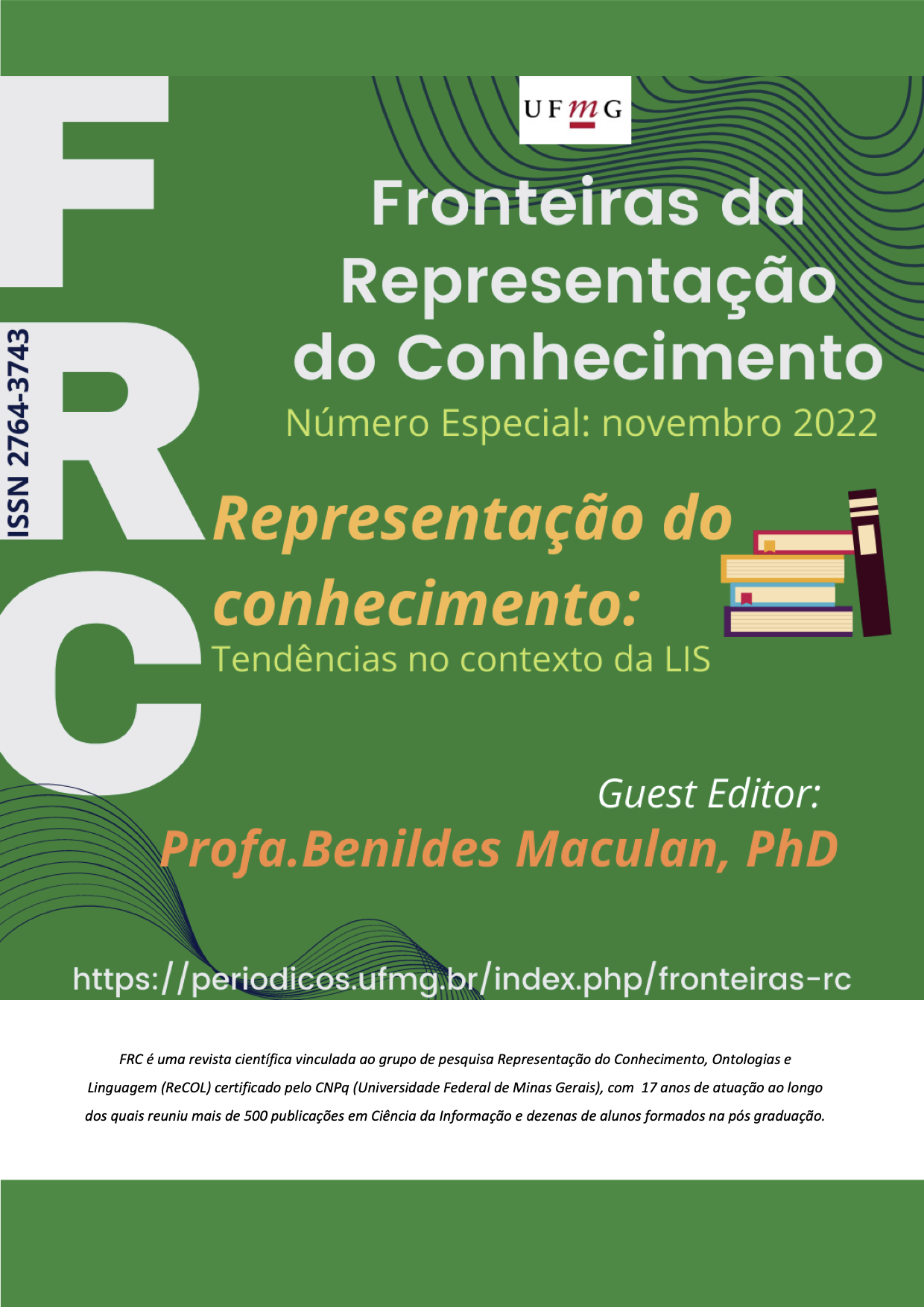KOS and Interoperability challenges and trends within the ISKO International Conference
Main Article Content
Abstract
Interoperability refers to the ability of two or more systems to exchange information with each other. Amid the considerable amount of data in different formats available in digital environments, it is essential to adopt strategies so that available technological solutions can exchange information with minimum loss. In this sense, the use of Knowledge Organization Systems (KOS) has been increasingly important for the publication and retrieval of information on the web, as highlighted in the proposal of a Semantic Web. Therefore, this paper seeks to analyze the use of KOS to enable interoperability between systems and datasets on the web, with the objective of highlighting challenges and trends of the last decade related to this theme. The methodology adopted was an integrative literature review, using as corpus the articles published in the International Conference of the International Society for Knowledge Organization (ISKO) between 2012 and 2022. Keywords were defined for the search of the articles, resulting in a corpus of 158 documents to be evaluated. A textual analysis was carried out with citation of 57 studies that pointed out in their contents some trends in the use of KOS for enabling interoperability, as well as the challenges highlighted by the authors. As a conclusion, the possibilities of advancing this field of research and action are discussed.
Article Details
Issue
Section

This work is licensed under a Creative Commons Attribution 4.0 International License.
From: https://creativecommons.org/licenses/by/4.0/
You are free to:
- Share — copy and redistribute the material in any medium or format
- Adapt — remix, transform, and build upon the material
- for any purpose, even commercially.
- The licensor cannot revoke these freedoms as long as you follow the license terms.
Under the following terms:
-
Attribution — You must give appropriate credit, provide a link to the license, and indicate if changes were made. You may do so in any reasonable manner, but not in any way that suggests the licensor endorses you or your use.
- No additional restrictions — You may not apply legal terms or technological measures that legally restrict others from doing anything the license permits.
Notices:
- You do not have to comply with the license for elements of the material in the public domain or where your use is permitted by an applicable exception or limitation.
- No warranties are given. The license may not give you all of the permissions necessary for your intended use. For example, other rights such as publicity, privacy, or moral rights may limit how you use the material.


